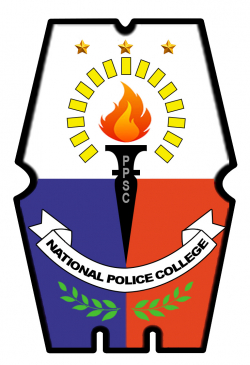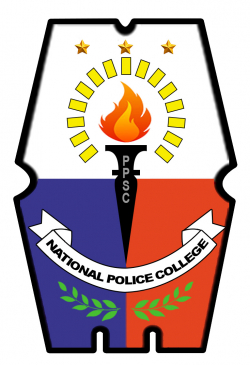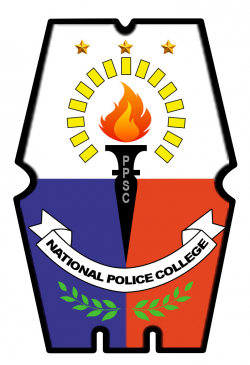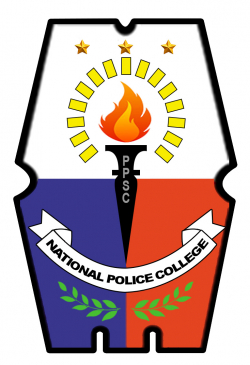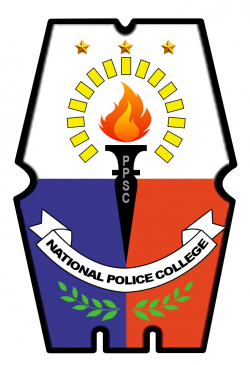DIGITALIZATION INITIATIVES OF THE PNP FORENSIC GROUP
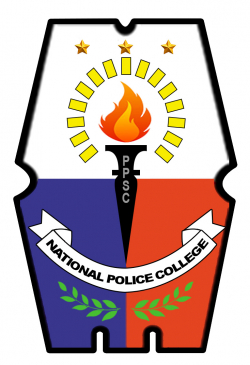
Type
Thesis
Authors
PCPT RONNIE M DARAGOSA, PCPT JOVELYNE D MAGGAY, ( , PCPT PATRICIA MAEGAN R MORALES, PCPT CHEER F NAVARRA )
Category
PSOAC
[ Browse Items ]
Publication Year
2023
Tags
Abstract
THE CASE
The PNP Forensic Group is one of the National Operation Support Unit of the PNP that is mandated to provide scientific investigation services and other technical support to the PNP offices and other agencies through fieldwork, scene of crime operations, forensic laboratory service, criminalistics training and research.
Guided by its mission and vision, the PNP FG is committed to provide quality services to the public and the criminal justice system with integrity, honesty, thoroughness, openness and timeliness through a robust and certified ISO 9001:2015 Quality Management System.
At present, the FG had established ten Core competencies and each is designed as an independent technical division. These are the Chemistry, Fingerprint Identification, DNA, Firearms Identification, Forensic Photography, Medico Legal, Physical Identification, Polygraph. Questioned Document, and SOCO. Likewise, the PNP FG continuously expanded its offices wherein 17 Regional Forensic Units, 5 District Forensic Units, 70 Provincial Forensic Units. 20 City Forensic Units, 10 Satellite Forensic Units and 5 SOCO Team Forensic Units were established.
For more than 78 years in existence, the PNP FG has taken on a vision of global competence, performing various laboratory examinations on submitted and recovered pieces of evidence, conduct crime scene processing, and likewise appeared in Courts as an expert witness
However, the Unit does not end only by conducting forensic examination and providing testimony in court, transformation of forensic services through digitalization is a need by adopting scientific advancements and stay updated with emerging technologies, to enhance the capabilities, improve collaboration, and contribute to the administration of justice.
As requisite of Republic Act 11032 "Ease of Doing Business and Efficient Government Service Delivery Act of 2018", a Philippine law enacted to promote efficiency and transparency in government transactions and to improve the ease of doing business in the country. which requires government agencies to streamline bureaucratic processes, eliminate red tape, and enhance the delivery of services to the public. By streamlining processes through the utilization of the Internet and technology the government agencies can be more accessible to stakeholders and people. With digitalization, not only can the government enhance its services, but it can also save money and improve the citizens' quality of life.
In connection on the above statement, Flores (2023) discussed that President Ferdinand Marcos Jr., improving bureaucratic efficiency is part of his administration’s Eight-point Socioeconomic Agenda in the near-term, putting a premium on digitalizing, harmonizing and standardizing government data. in a statement made by the Office of the Press Secretary in January 2023, it is stated that "The administration of President Marcos has made a commitment to transform government services in 2023 to ensure responsiveness and accessibility to the public."
Technological advances in recent years have changed the nature of policing so significantly that many methods and tools from just a decade ago have become antiquated and incompatible with current technology. Digitalization serves as the bedrock for efficient work process in today's dynamic business landscape. Through automation, real-time collaboration, data-driven decision making. and streamlined information management, organizations can unlock their full potential and ahead of the competition. Embracing digitalization is not only an imperative for survival but a pathway to sustained success and growth in the future.
One of the pioneer projects in digitalization in Philippine National Police is the PNP Next Generation Investigation Solution which comprises of different IT solutions such as Crime Information, Reporting and Analysis System (CIRAS). Case Management and Analysis System (CMAS), Case Information database Management System (CIDMS), e-Warrant, e-Rougue and e-Subpoena. The objective of PNP NGIS is to make monitoring and reporting of crime incident and cases more accurate and to expedite the generation of more reliable statistics.
As mentioned in their thesis Langkit, J.P. Quintero. A.Μ., & Vallejo, N.Z. (2021), digitalization process can help police officers to perform better in their respective roles by allowing speedy transactions, easy access of data from input, storage, preservation of evidences, to retrieval of needed information.
Based on the result of the interview, at present, the PNP FG has no common electronic system database that can be used for quick- searching, cross-matching of records, generation of statistical data for reporting, decision making base on real time statistical reports, human resource planning and deployment, digital report archiving and even centralized file saving;
All frontline services being catered by the Forensic Group pertaining to the handling of client's information are being manually encoded using an Office Automation Software or recorded using a logbook. There is no way for the FG personnel to verify a certain client that could have a previous examination record on other FG offices neither a way to inquire examination records from Regional down to Provincial Forensic Units. Likewise, there is no available online system wherein a forensic officer/examiner can access his easily records remotely.
Moreover, there is no available automated system that records evidence that goes in and out of the evidence room and no available automated system to easily monitor the after-hearing reports of the attending Forensic examiners in courts.
However, the PNP FG is now starting to integrate digital technologies to increase numerous benefits, including increased efficiency, improved accuracy, enhanced data management, and expanded capabilities. It transforms work processes by leveraging technology to streamline operations, improve collaboration, enhance customer experience, and drive innovation. It enables the Unit to stay competitive in a rapidly evolving digital landscape.
Interview Schedule (Question Guide)
The following are the guide questions utilized during the conduct of the study and interview.
1. What are the current steps undertaken by PNP Forensic Group in the digitalization of its workplace processes?
2. What are the gaps and issues encountered by the PNP FG in the effective implementation of WorkPAD and UFDMS?
3. What are the proposed solution that can be offered in the current digitalization project to improve the Unit's work processes?
4. What are the proposed recommendations that can be offered in the current digitalization project to improve the Unit's work processes?
The PNP Forensic Group is one of the National Operation Support Unit of the PNP that is mandated to provide scientific investigation services and other technical support to the PNP offices and other agencies through fieldwork, scene of crime operations, forensic laboratory service, criminalistics training and research.
Guided by its mission and vision, the PNP FG is committed to provide quality services to the public and the criminal justice system with integrity, honesty, thoroughness, openness and timeliness through a robust and certified ISO 9001:2015 Quality Management System.
At present, the FG had established ten Core competencies and each is designed as an independent technical division. These are the Chemistry, Fingerprint Identification, DNA, Firearms Identification, Forensic Photography, Medico Legal, Physical Identification, Polygraph. Questioned Document, and SOCO. Likewise, the PNP FG continuously expanded its offices wherein 17 Regional Forensic Units, 5 District Forensic Units, 70 Provincial Forensic Units. 20 City Forensic Units, 10 Satellite Forensic Units and 5 SOCO Team Forensic Units were established.
For more than 78 years in existence, the PNP FG has taken on a vision of global competence, performing various laboratory examinations on submitted and recovered pieces of evidence, conduct crime scene processing, and likewise appeared in Courts as an expert witness
However, the Unit does not end only by conducting forensic examination and providing testimony in court, transformation of forensic services through digitalization is a need by adopting scientific advancements and stay updated with emerging technologies, to enhance the capabilities, improve collaboration, and contribute to the administration of justice.
As requisite of Republic Act 11032 "Ease of Doing Business and Efficient Government Service Delivery Act of 2018", a Philippine law enacted to promote efficiency and transparency in government transactions and to improve the ease of doing business in the country. which requires government agencies to streamline bureaucratic processes, eliminate red tape, and enhance the delivery of services to the public. By streamlining processes through the utilization of the Internet and technology the government agencies can be more accessible to stakeholders and people. With digitalization, not only can the government enhance its services, but it can also save money and improve the citizens' quality of life.
In connection on the above statement, Flores (2023) discussed that President Ferdinand Marcos Jr., improving bureaucratic efficiency is part of his administration’s Eight-point Socioeconomic Agenda in the near-term, putting a premium on digitalizing, harmonizing and standardizing government data. in a statement made by the Office of the Press Secretary in January 2023, it is stated that "The administration of President Marcos has made a commitment to transform government services in 2023 to ensure responsiveness and accessibility to the public."
Technological advances in recent years have changed the nature of policing so significantly that many methods and tools from just a decade ago have become antiquated and incompatible with current technology. Digitalization serves as the bedrock for efficient work process in today's dynamic business landscape. Through automation, real-time collaboration, data-driven decision making. and streamlined information management, organizations can unlock their full potential and ahead of the competition. Embracing digitalization is not only an imperative for survival but a pathway to sustained success and growth in the future.
One of the pioneer projects in digitalization in Philippine National Police is the PNP Next Generation Investigation Solution which comprises of different IT solutions such as Crime Information, Reporting and Analysis System (CIRAS). Case Management and Analysis System (CMAS), Case Information database Management System (CIDMS), e-Warrant, e-Rougue and e-Subpoena. The objective of PNP NGIS is to make monitoring and reporting of crime incident and cases more accurate and to expedite the generation of more reliable statistics.
As mentioned in their thesis Langkit, J.P. Quintero. A.Μ., & Vallejo, N.Z. (2021), digitalization process can help police officers to perform better in their respective roles by allowing speedy transactions, easy access of data from input, storage, preservation of evidences, to retrieval of needed information.
Based on the result of the interview, at present, the PNP FG has no common electronic system database that can be used for quick- searching, cross-matching of records, generation of statistical data for reporting, decision making base on real time statistical reports, human resource planning and deployment, digital report archiving and even centralized file saving;
All frontline services being catered by the Forensic Group pertaining to the handling of client's information are being manually encoded using an Office Automation Software or recorded using a logbook. There is no way for the FG personnel to verify a certain client that could have a previous examination record on other FG offices neither a way to inquire examination records from Regional down to Provincial Forensic Units. Likewise, there is no available online system wherein a forensic officer/examiner can access his easily records remotely.
Moreover, there is no available automated system that records evidence that goes in and out of the evidence room and no available automated system to easily monitor the after-hearing reports of the attending Forensic examiners in courts.
However, the PNP FG is now starting to integrate digital technologies to increase numerous benefits, including increased efficiency, improved accuracy, enhanced data management, and expanded capabilities. It transforms work processes by leveraging technology to streamline operations, improve collaboration, enhance customer experience, and drive innovation. It enables the Unit to stay competitive in a rapidly evolving digital landscape.
Interview Schedule (Question Guide)
The following are the guide questions utilized during the conduct of the study and interview.
1. What are the current steps undertaken by PNP Forensic Group in the digitalization of its workplace processes?
2. What are the gaps and issues encountered by the PNP FG in the effective implementation of WorkPAD and UFDMS?
3. What are the proposed solution that can be offered in the current digitalization project to improve the Unit's work processes?
4. What are the proposed recommendations that can be offered in the current digitalization project to improve the Unit's work processes?
Number of Copies
1
| Library | Accession No | Call No | Copy No | Edition | Location | Availability |
|---|---|---|---|---|---|---|
| NPC Library | 676575 | 1 | Yes |
